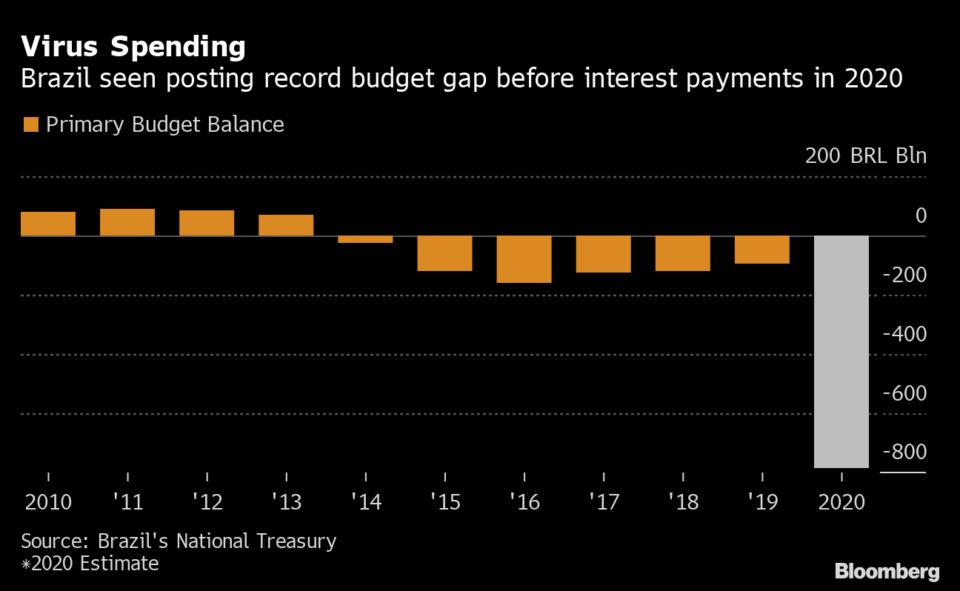
Brazil’s Economy Faces ‘Exceptionally High’ Risks, IMF Says
(Bloomberg) — The International Monetary Fund said the Brazilian economy faces “exceptionally high and multifaceted” risks as it continues to grapple with the coronavirus pandemic and its impact on the country’s debt dynamics.
“There is an unusually high degree of uncertainty over how the pandemic will evolve and the expiry of fiscal support at the end of the year will add pressure on the already-wide output gap,” IMF staff wrote in a statement Monday following an official visit to Brazil.
The government’s emergency aid program, which provided cash stipends to some 23 million Brazilians, helped avert a “deeper economic downturn, stabilized financial markets, and cushioned the effects of the pandemic on the poor,” the IMF said. The Washington-based institution expects Brazil’s economy to shrink by 5.8% in 2020 and 2.8% in 2021.
But Brazil’s economy remains fragile amid rising levels of public debt used to finance the stimulus and a growing fiscal deficit, currently forecast at 12% of gross domestic product. The IMF said a second wave of cases, long-term economic damage from the recession and confidence shocks all posed significant risks to its recovery, and additional fiscal response could be needed.
As public debt rises to 100% of GPD, authorities commitment to the constitutional spending ceiling was “essential to support market confidence and keep the sovereign risk premium contained,” the IMF said.
Swift implementation of structural reforms, it added, will be crucial to “mitigate the risk of undesirable debt dynamics,” particularly if concerns over Brazil’s finances start to erode market confidence in the country and push up interest rates.
.

